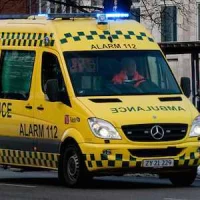A clinical trial that tested mobile videoconferencing via tablet computer to enable doctors to assess stroke patients en route to hospital found that the system produced diagnoses that correlate highly to bedside assessment. The study results have been published by the scientific journal Neurology.
The Improving Treatment with Rapid Evaluation of Acute Stroke via Mobile Telemedicine, or iTREAT kit consists of a tablet that is suction-mounted to the ambulance and a portable modem and antenna, so that an encrypted form of video consultation can take place between a neurologist and the stroke patient, as well as with the emergency medical services (EMS) provider.
Andrew Southerland, MD, assistant professor of neurology at the University of Virginia Health System, who led the study said that the initial feasibility testing was with ,rural ambulance agencies to allow enough time for the stroke assessment. They also tested the mobile telestroke system in simulated stroke scenarios.
The study found that more than 90 percent of the test runs conducted locally had sufficient quality and audiovisual connectivity to perform the consultation. The researchers found that stroke testing results were 98 percent correlated with assessments that would have been done at the bedside. Thus use of iTREAT would allow for more appropriate transport decisions by the EMS team on where to take the patient and potentially faster treatment of the patient once at the hospital.
See Also: Lifesaving Potential of US in Ambulances: Samsung Trial
Next Steps
Southerland and his colleagues are now conducting a trial that includes real stroke patients, and plan to run a multi-centre national clinical trial in the future.
Watch UVA Health’s Video about iTreat
Source: UVA Health System
Image caption: Paramedic Brett Schneider, a supervisor for the University of Virginia Health System's Medic V emergency transport system, consults with stroke expert Andrew Southerland, MD,
Image credit: Josh Barney, UVA Health System
Video credit: Harry Moxley, UVA Health System
References:
Chapman Smith SN, Govindarajan P, Padrick MM, Lippman JM, McMurry TL,
Resler BL, Keenan K, Gunnell BS, Mehndiratta P, Chee CY, Cahill EA,
Dietiker C, Cattell-Gordon DC, Smith WS, Perina DG, Solenski NJ, Worrall
BB, Southerland AM; As the iTREAT Investigators (2016) A low-cost, tablet-based option for prehospital neurologic assessment: The iTREAT Study.
Neurology, 87(1):19-26. doi: 10.1212/WNL.0000000000002799. Epub 2016 Jun 8.
Neurology, 87(1):19-26. doi: 10.1212/WNL.0000000000002799. Epub 2016 Jun 8.
Latest Articles
stroke, tablets, mobile neurological assessment, telemedicine, prehospital care, ambulances
A clinical trial that tested mobile videoconferencing via tablet computer to enable doctors to assess stroke patients en route to hospital found that the system produced diagnoses that correlate highly to bedside assessment. The study results have been pu










